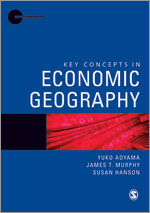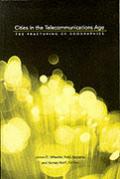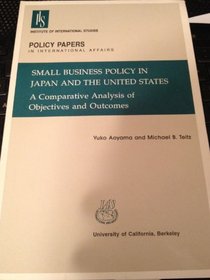
From the Back Cover:
“This book provides a comprehensive and highly readable review of the conceptual underpinnings of economic geography. Students and professional scholars alike will find it extremely useful both as a reference manual and as an authoritative guide to the numerous theoretical debates that characterize the field.” Professor Allen J. Scott, Department of Geography, University of California, Los Angeles, USA
“This book guides readers skillfully through the rapidly changing field of economic geography. It is a highly readable synthesis of contemporary debates within economic geography that is also sensitive to the history of the sub-discipline.” Dr. Sara Hall, School of Geography, University of Nottingham.
Key Concepts in Economic Geography is a new kind of textbook that forms part of an innovative set of companion texts for the Human Geography sub-disciplines. Organized around 20 short essays, Key Concepts in Economic Geography provides a cutting edge introduction to the central concepts that define contemporary research in Economic Geography. The book includes:
– An introductory chapter providing a succinct overview of the recent developments in the field. Read the Introductory chapter, “What is Economic Geography?”
– Over 20 key concept entries with comprehensive explanations, definitions, and evolutions of the subject
– Extensive pedagogic features that enhance understanding including key points, further reading and section introductions.
An ideal companion text for upper-level undergraduate and postgraduate students in Economic Geography, the book presents the key concepts in the discipline, demonstrating their historical roots and contemporary applications to fully understand the processes of economic change, regional growth and decline, globalization, and the changing locations of firms and industries. Written by an international recognized set of authors, the book is an essential addition to any geography student’s library.
Yuko Aoyama, James T. Murphy, and Susan Hanson are all based at Clark University, USA
Independent Reviews provided as comments to the Sage Publications website:
“The nice thing about this text is that it is concise but with depth in its coverage. A must have for any library, and a useful desk reference for any serious student of economic geography or political economy.” – Dr Adam Dixon, School of Geographical Sciences, Bristol University.
“Book presents in a concise way an efficient explanation of a range of core concepts in economic geography. Individual chapters are very useful for undergraduate students to obtain a better grasp of these concepts. A number of these are discussed in tutorials and students are recommended to include chapters from this book as supplemental reading for these tutorials.” – Dr L. Van Grunsven, Faculty of Geosciences, Utrecht University.
“This book provides an excellent introduction into the spatial dimensions of the economy as well as the economic dimensions of space. I have recommended it to students with special interest in the geographical aspects of economic history.” -Professor Ernst Langthaler, Department for Economic and Social History, University of Vienna.

